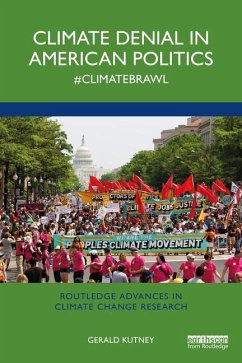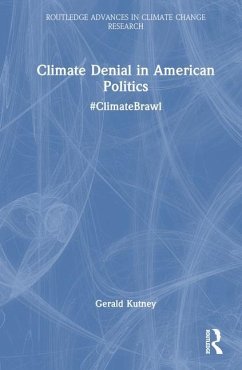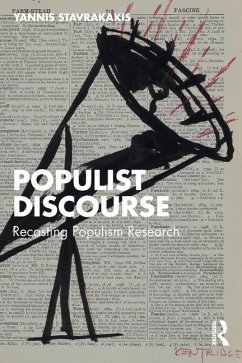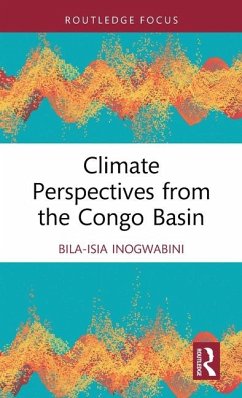
Climate Politics in Populist Times
Climate Change Communication Strategies in Germany, Spain, and Austria
Versandkostenfrei!
Versandfertig in 6-10 Tagen
144,99 €
inkl. MwSt.
Weitere Ausgaben:

PAYBACK Punkte
72 °P sammeln!
This book navigates the neglected territory where far-right populism intersects with climate change, presenting a nuanced examination that transcends traditional research boundaries.In recent decades, Europe has grappled with the surge of far-right and populist movements, fueling robust academic debates. Simultaneously, the global discourse on climate change has become increasingly pervasive in societal and political spheres. This book provides a comprehensive exploration of how populist far-right parties discuss climate change within their national contexts, focusing on Germany, Spain, and Au...
This book navigates the neglected territory where far-right populism intersects with climate change, presenting a nuanced examination that transcends traditional research boundaries.
In recent decades, Europe has grappled with the surge of far-right and populist movements, fueling robust academic debates. Simultaneously, the global discourse on climate change has become increasingly pervasive in societal and political spheres. This book provides a comprehensive exploration of how populist far-right parties discuss climate change within their national contexts, focusing on Germany, Spain, and Austria. Using a meticulous methodology rooted in critical discourse studies, Mirjam Gruber examines the perspectives on climate change held by mainstream parties thereby defining the national policy field. Gruber then delves into the discourse about climate change of populist far-right parties, revealing a complex web of obstructionist arguments intricately tied to the national policy context. By analyzing a diverse array of documents spanning five years, including social media posts, press releases, parliamentary debates, and policy documents, Gruber uncovers a stark contrast between the willingness of mainstream parties to address climate concerns and the obstructionist rhetoric employed by their far-right counterparts. This illuminating exploration underscores the importance of context in understanding political communication and provides profound insights into how different nations frame the climate change narrative.
Climate Politics in Populist Times will be of great interest to students and scholars of climate change, environmental politics, climate change communication and populist far-right ideologies.
In recent decades, Europe has grappled with the surge of far-right and populist movements, fueling robust academic debates. Simultaneously, the global discourse on climate change has become increasingly pervasive in societal and political spheres. This book provides a comprehensive exploration of how populist far-right parties discuss climate change within their national contexts, focusing on Germany, Spain, and Austria. Using a meticulous methodology rooted in critical discourse studies, Mirjam Gruber examines the perspectives on climate change held by mainstream parties thereby defining the national policy field. Gruber then delves into the discourse about climate change of populist far-right parties, revealing a complex web of obstructionist arguments intricately tied to the national policy context. By analyzing a diverse array of documents spanning five years, including social media posts, press releases, parliamentary debates, and policy documents, Gruber uncovers a stark contrast between the willingness of mainstream parties to address climate concerns and the obstructionist rhetoric employed by their far-right counterparts. This illuminating exploration underscores the importance of context in understanding political communication and provides profound insights into how different nations frame the climate change narrative.
Climate Politics in Populist Times will be of great interest to students and scholars of climate change, environmental politics, climate change communication and populist far-right ideologies.













